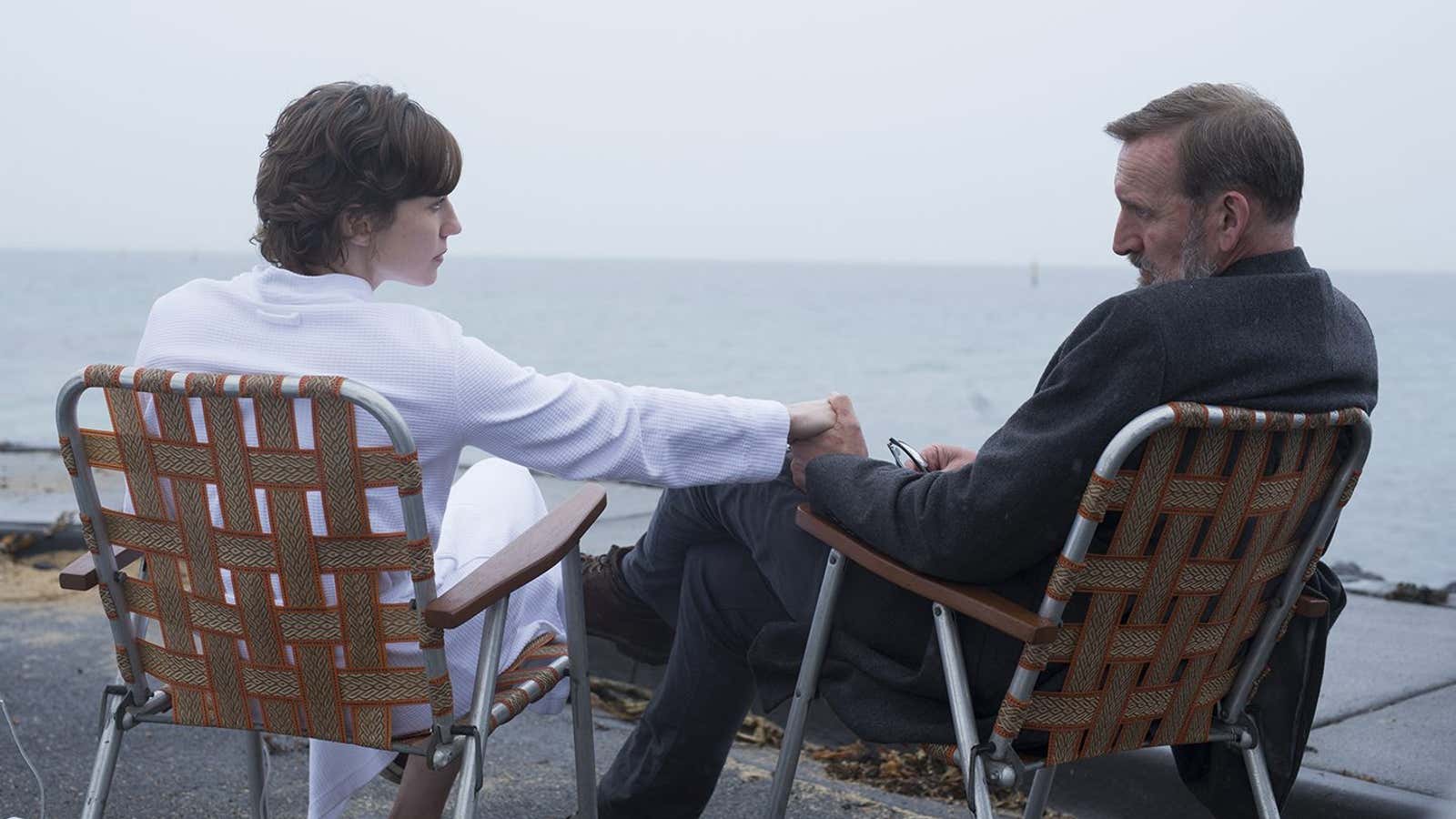Damon Lindelof is not going to hide. That’s the lesson he’s lived by his entire career as one of television’s best and most transparent writers—and perhaps his biggest regret is the one time he strayed from that principle.
As Lindelof prepares to end his critically acclaimed HBO series The Leftovers, he talked to Quartz about the ending of that other mysterious show with a cult following that he co-created: Lost.
Full disclosure: I am among the world’s biggest Lost fans. I will forever gloat about the ABC show’s incredibly vivid characters and its hugely compelling narrative, and I will defend the show’s every miscue (except, maybe, that one notorious arc about a character’s tattoos, which even Lindelof self-deprecatingly jokes about). I am constantly explaining to friends and random people on the internet that no, they were not dead the entire time.
I’ll even stick up for the show’s notorious ending—though plenty of the show’s disgruntled fans, who had hoped for a neater tying up of loose ends, felt differently, and let Lindelof know it. Many hated the finale, and some of this very vocal minority of viewers have sworn off of any of Lindelof’s future projects as a result.
For his part, Lindelof stands by the ending he and co-showrunner Carlton Cuse crafted. But he does have one regret: He wishes he had handled the show’s aftermath a bit differently.
“One of the biggest mistakes that Carlton and I made was going radio silent right after the Lost finale,” Lindelof told Quartz. “We had been so accessible, and then suddenly we weren’t. If we had been out in front of it right after that finale aired, I’m not sure it would have changed people’s reaction to it, but it looked like we were hiding. We weren’t, but that’s what it looked like.”
Indeed, in the six years leading up to the Lost finale in 2010, Lindelof and Cuse had been extraordinarily accessible to viewers, doing countless interviews and even hosting their own weekly podcasts on which viewers could ask their own questions. But after the ending, the pair stopped doing interviews altogether, and hoped the show could stand for itself without them needing to explain or defend anything.
Seven years later, Lindelof still seems frustrated by the contingent of viewers who failed to understand the ending, or didn’t even try to.
“Please explain to me the theory that they were dead the whole time,” Lindelof said, referring to one of the common misunderstandings of the show’s end. “Just, according to this theory that everyone really died in the plane crash, how do they know Desmond? Why are Desmond and Penny in the church? Just answer that one for me. How would they even know each other if they were all strangers on a plane?”
Anyone expecting tidy resolutions in Sunday night’s finale of The Leftovers hasn’t been paying much attention to the show. Even so, the premium cable show in the golden age of peak TV is unlikely to face the widespread backlash that Lost did when its last episode aired on primetime. But in any case, Lindelof has learned his lesson. This time, if people knock down or pick apart his artistic achievement, he’ll be right there to respond. He’s not going anywhere.
Check back Sunday night for the full interview with Damon Lindelof about The Leftovers series finale.
